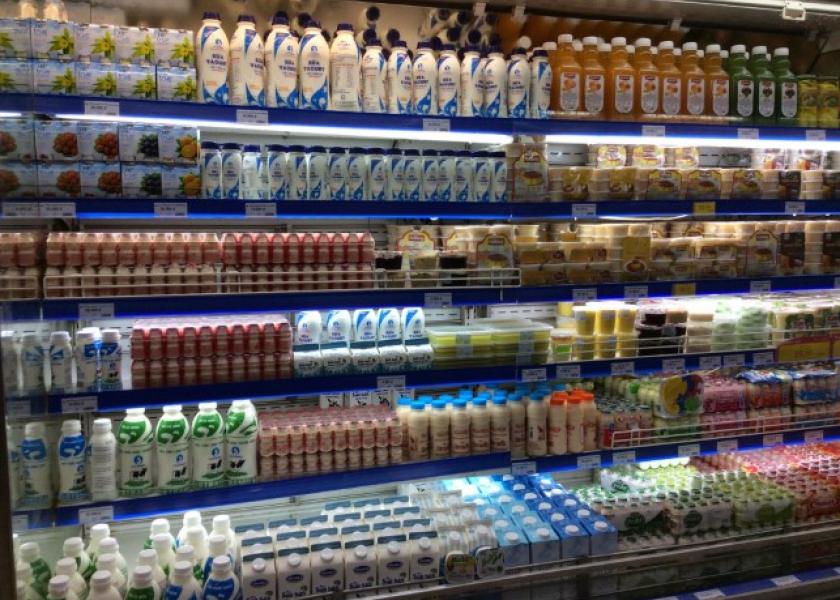June is Dairy Month

Dairy foods from farm to table. Have you ever wondered where some of your favorite foods like milk, cheese and yogurt come from?
By: Suzanne Pish, Michigan State University Extension
Have you ever wondered where some of your favorite foods like milk, cheese and yogurt come from? The United Dairy Industry of Michigan says lots of milk and dairy foods are made locally-right here in Michigan! Quality milk starts right on the farm. Nutritious dairy foods begin with dairy farmers who work hard to provide their cows and land with excellent care. Michigan is home to 380,000 dairy cows and 1,900 dairy farms. The milk then travels to the dairy plant. To ensure freshness, milk is transported from farm to the dairy plant at least every 24-48 hours by a refrigerated truck. Milk has to pass rigorous tests to ensure quality and safety. Dairy foods are among the safest and most tested foods in the US. Once it is pasteurized, the milk is ready to be bottle or made into cheese, yogurt, and other dairy foods. There are nearly 90 dairy processing plants in Michigan. The milk is then delivered fresh to you! Milk arrives at your retail/school within 48 hours of leaving your local dairy farm.
Here is a fun TRY 30 Days of Dairy worksheet to incorporate dairy into your life over the next 30 days.
There are many ideas on how to celebrate June is dairy month in Michigan State University Extensions article “Consumers have many reason to celebrate June is dairy month”.
Michigan Dairy Facts
- Michigan’s dairy industry is a leading segment of Michigan agriculture, contributing $14.7 billion to the state’s economy annually.
- These dollars employ local veterinarians, equipment dealers, and our employees.All providing jobs for Michigan. A dollar spent locally generates twice as much income for the local economy.
- Dairy represented 20 percent of cash receipts statewide in 2013, including dairy farming, dairy processing and the dairy wholesale/retail sector.
- Michigan has around 390,000 dairy cows, representing approximately 2,000 dairy herds.
- 98 percent of Michigan dairy farms are family owned, many by multiple generations of the same family.
- The average dairy herd in Michigan has 187 cows. Just like businesses grow to support more families, herd sizes increase to allow the next generation to continue farming.
- Michigan ranks seventh in milk production in the U.S. Dairy cows in Michigan produced approximately 9.6 billion pounds of milk.
- The average Michigan cow produces approximately 24,638 pounds of milk each year. That’s 2,865 gallons of milk!
- Michigan milk is local! Michigan’s 1,700 Grade A dairy farms produce more than enough milk to supply the entire state. Surplus milk is exported to help meet demand in other states.
- In supermarkets and local farmers markets, you can find milk, cheese and yogurt produced by Michigan dairy farmers. When you buy Michigan dairy products, you not only “buy local” and support area farmers, you buy quality.
- To check where your milk is bottled look for the code. Every container of milk is identified by a 5-digit code. The code includes a 2-digit state code followed by a 3-digit processing plant code. Michigan’s code is 26.
- Only 1.7 percent of the U.S. population produces food for the other 98 percent plus millions worldwide.







